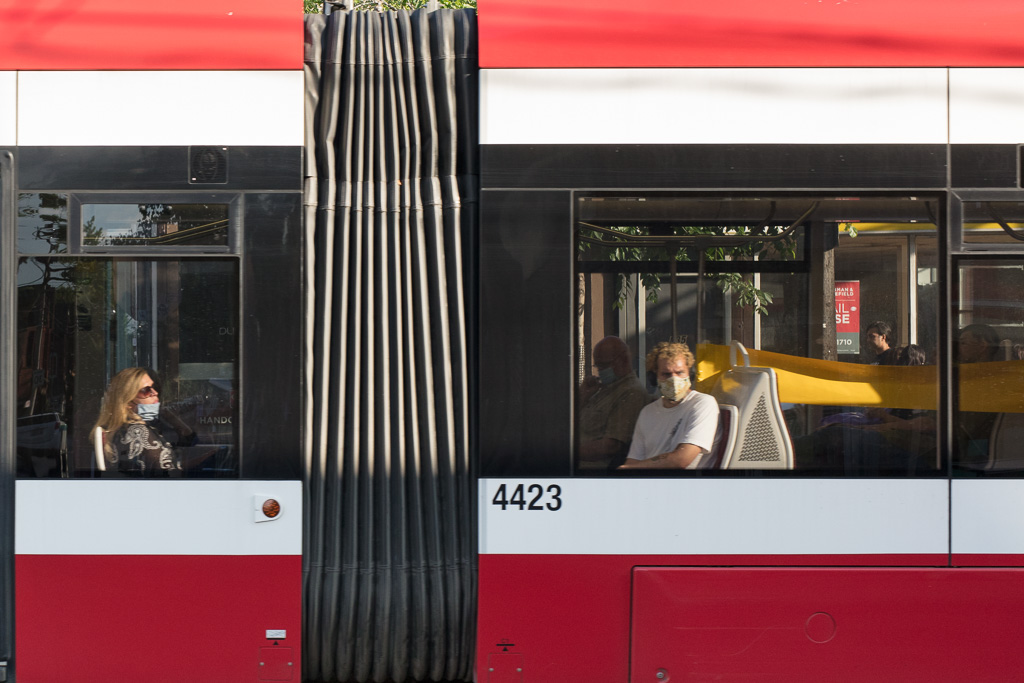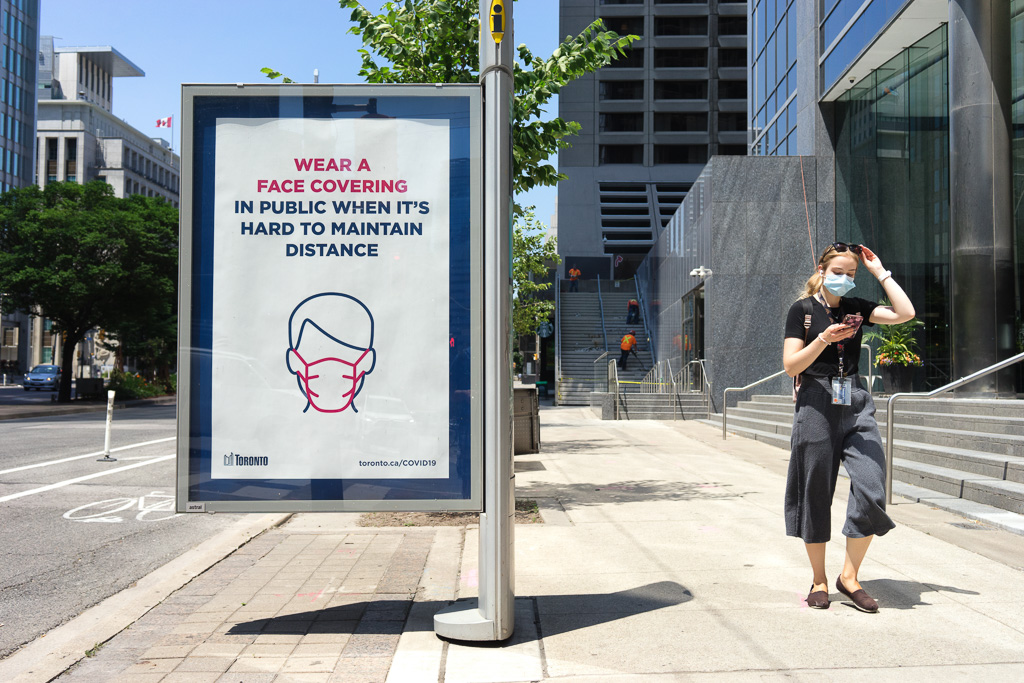Why would I comply?
Everything I know about authority I learned by the age of eight. It began with my parents, two educators, trying their best to manage a three year old boy with a wilful streak. Stand in the corner and don’t go back outside until you’re ready to play nicely with the others. They left it to me to decide when I was ready. It ended in grade three with Mrs. Martin who knew only one answer to my disruptive behaviour: detention, which I served nightly for two months until my parents intervened, persuading the administration that the problem might have as much to do with Mrs. Martin as with their son. A punitive authoritarianism signals a failure of imagination. Not once in two months did Mrs. Martin express the slightest curiosity why an otherwise healthy intelligent boy would act out the way I did. In a way, Mrs. Martin was the most important teacher I ever had. From her I learned a simple lesson: the only thing angry authority ever engenders is contempt.
Submission isn’t compliance. I submit to power. I comply out of respect or admiration or reasoned assent or even out of love.
Semantic Satiation
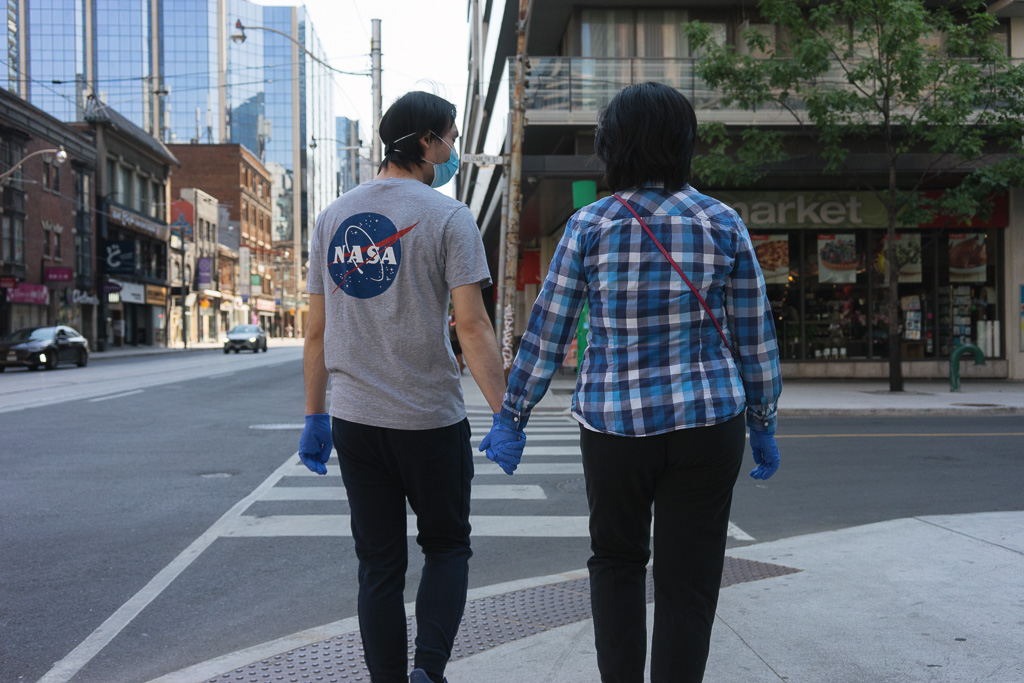
If you repeat the same word over and over again, it will start to sound strange and will temporarily lose its meaning. This is called semantic satiation. I’ve noticed that something analogous happens if I stare for a long time into my wife’s eyes. Maybe it also has a technical name but I’m too lazy to look it up so, for the time being, I’ll call it uxorious satiation. Although I’ve known my wife for 50 years (we met as young children), if I stare into her eyes for a long time, she begins to look like a stranger to me. This hints at a truth I think we discover in all our relationships, namely that we can never truly know another person and can never truly be known. I think all people crave to be known. This desire under-girds many of our primal myths. But these myths—the Garden of Eden, for example—teach us that a return to a perfect knowing, the sort of knowing we might have enjoyed in the womb, is impossible. Impossible at least in this life.
Our children complain that we don’t understand them and wish that we would try harder, but our own experience with parents who never really got us teaches that what our children want is a fantasy. Current talk about Artificial Intelligence flirts with the same fantasy. People don’t understand us, so let’s build machines that can do our understanding for us. But whether it’s ancient wisdom or present day coding, the lesson is the same: there is an unknowability at the heart of our being. It’s as if each one of us is divided from every other by an impermeable barrier.
Peer Pressure
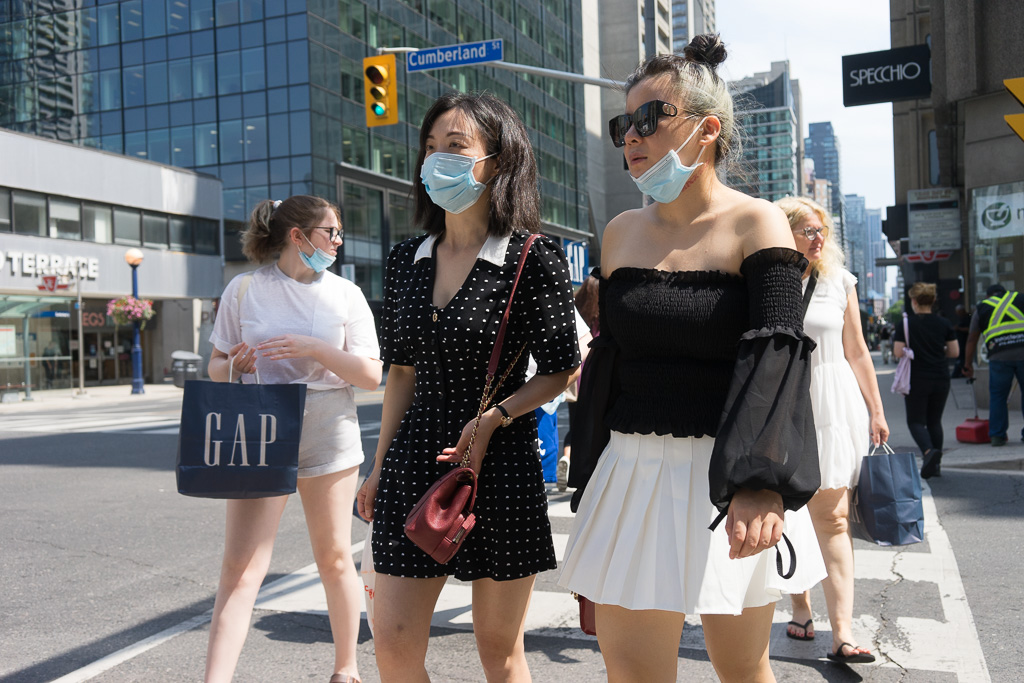
Do I? Don’t I? Do I sort of?
What if, when I step outside, I find that I’m the only one wearing a mask? Will I feel like a fool? Or will I have the personal fortitude to carry on with my own choice whatever anyone else thinks of me?
Will it match my outfit? Will it make a viable accessory?
What if I have bad breath? Will I be able to stand my own company?
What if I have a head cold? Will I keep reinfecting myself? What if snot keeps running down into my mouth?
What if I have to vomit, but I’m too conscientious to take off my mask? Will I end up aspirating my own vomit like the band member in This Is Spinal Tap?
What if I see somebody I want to avoid? Will my mask be a good enough disguise? Too bad there isn’t a mask that could make me invisible.
Bandits
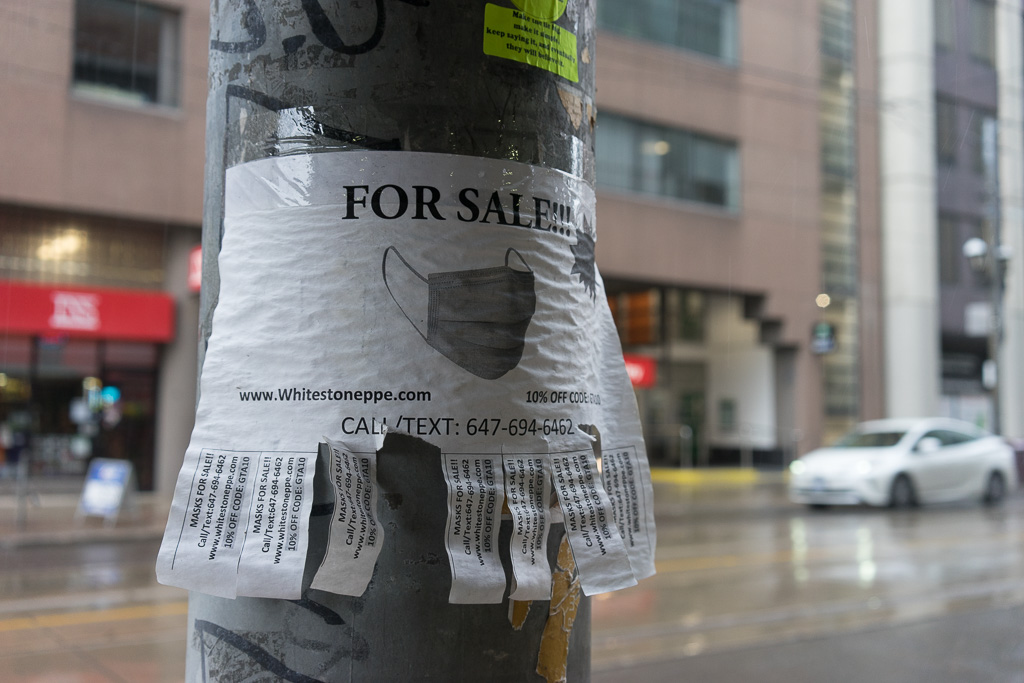
Last weekend, my wife and I went up to Camp Couchiching in Longford Mills. Because of Covid-19, there are no campers this summer. The camp will let alumni stay there, a handful at a time, with the understanding that they look after themselves and earn their keep by performing chores during the day. In the evening, they get to relax. One evening, we were singing around a campfire (actually, it was a citronella candle fire) when the camp director decided it would be a good idea to video us singing to show the world that even though there are no campers, the camp spirit lives on. I volunteered to record it and ran through the dark for my gear. As I approached our cabin, I saw that the door was open. Getting closer, I saw a raccoon sitting on the threshold. I brandished a broom handle and yelled bloody murder. Stepping inside, I found two more raccoons rifling through our food. I pointed at the door and scolded them. They looked up at me like children who knew they’d done wrong, and they scampered away. What struck me about our encounter was how the raccoons looked right at home with our new normal. Everybody wears a mask these days.
Facial Recognition
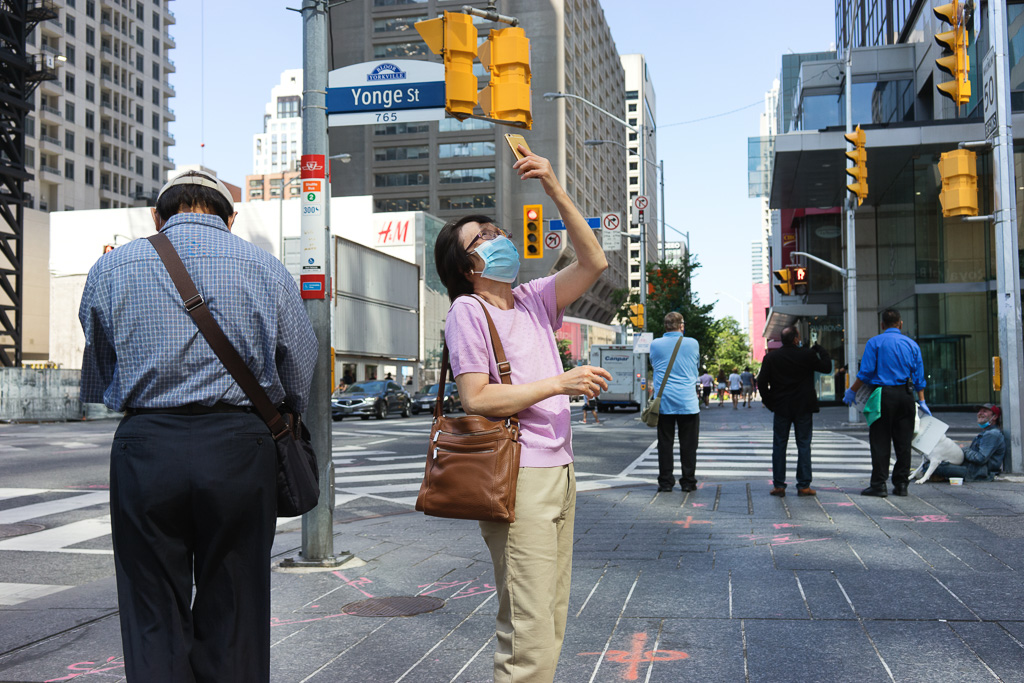
I used to think masks were for badasses, protesters during the G20 summit who didn’t want to get ID’d by police, or graffiti artists trying to hide from surveillance cameras. Now, masks are what sensible people wear, like Birkenstocks or sunscreen. The fact that they might also foil surveillance efforts is a bonus. However, Chinese authorities assure us that, at least as far as their facial recognition software is concerned, masks make no difference. Since Covid-19, Apple has rejigged its iOS so that iPhones unlock even when the owner is wearing a mask. And security experts advise that Covid mask selfies are in fact training a new generation of facial recognition algorithms. If you want to foil facial recognition systems now, you need to wear a mask, sunglasses, a hat with a low brim, and wrap it all up in a scarf.
The Subway
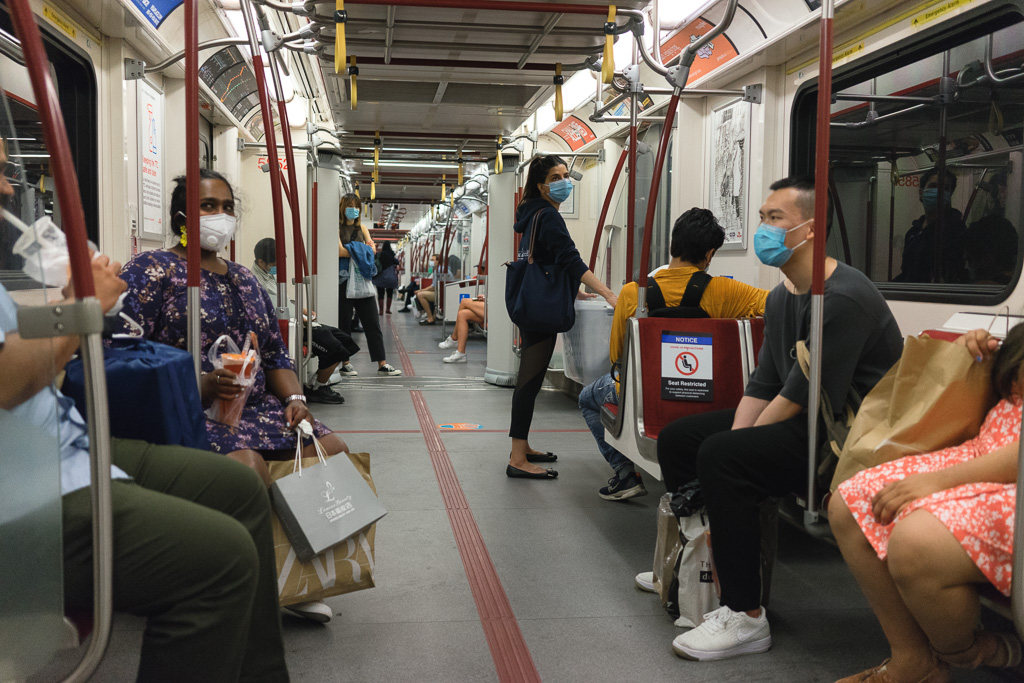
I miss the subway. Not the actual subway. I miss the mythical subway of Toronto. This subway exists only in my imagination as a special narrative much like another special narrative: Toronto the Good. It’s something I desperately want to believe in like Brigadoon or honest politicians. My subway narrative is the story of a magical place like no place else on earth where you can stand in a subway car and listen to conversations in 12 different languages, where people in suits travels to their offices alongside medical staff in hospital greens, students, baristas, janitors, homeless people, and where race is irrelevant. It’s the stuff of a post-race, post-class dreamworld.
Then along came Covid-19 and exposed the subway as a less fantastical place. In the middle of March, when the city first went into lockdown, the good people of Toronto abandoned the subway. Anybody who could, worked from home. Or they drove to work. Or rode their bicycles. Or walked. Anything so long as they didn’t have to ride in cramped subway cars with all those microbe-carrying poor people who were, incidentally overwhelmingly Black or Brown. The suit contingency is gone and, quite possibly, may never come back. Without support from the federal and provincial governments, the Toronto Transit Commission will have to cut back its service and, just like Covid-19 itself, that will hurt certain groups disproportionately.
Butterfly Effect
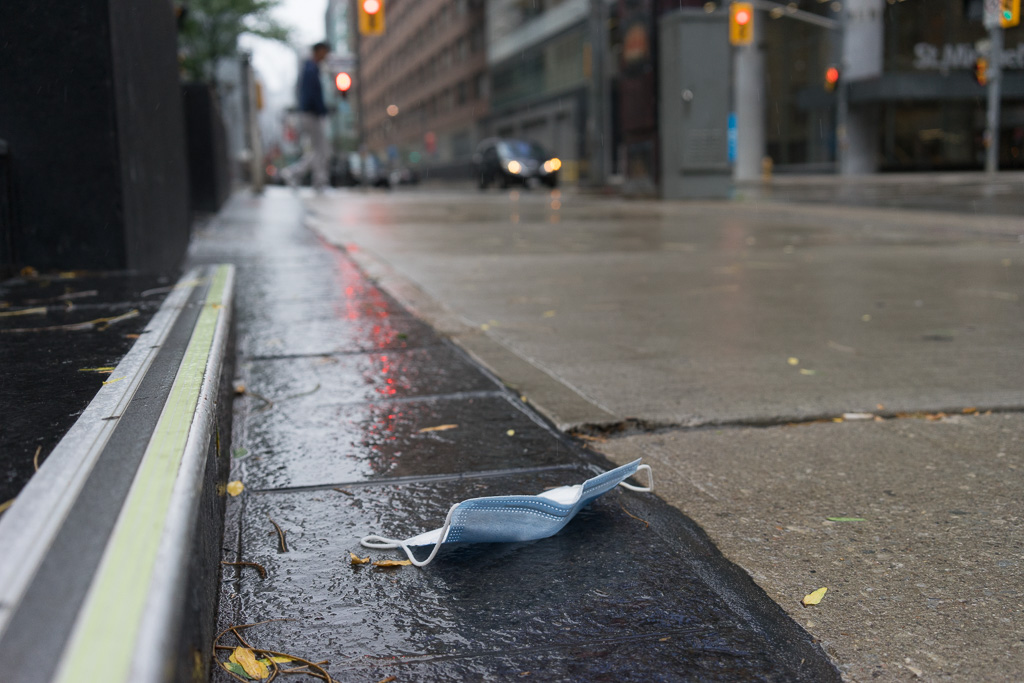
I’m not a multitasker. Covid-19 has sapped all my attention. I become so preoccupied with immediate concerns, like washing my hands, disinfecting groceries, keeping my distance as I walk down the street, that I forget other concerns. These others don’t go away just because my attention flags.
The other day I walked into a community grocery store and an employee at the entrance told me I couldn’t use my own bags. The owners of the store were concerned that personal bags might spread the infection. Suddenly I was mindful that environmental concerns haven’t gone away and that old habits, like not using plastic bags, are habits I’ve developed for a reason. I told the employee I wasn’t going to honour one concern at the expense of another and I left the store.
I’m trying to foster a different way of thinking about Covid-19. From a planetary point of view, it’s part of a syndrome that incorporates environmental degradation, global warming, industrialization, Arctic drilling, microplastics, consumerism, social media, neoliberalism, wage slavery, equities markets, nationalism, factory farming. No one concern can adequately be addressed without addressing every other concern.
Like the butterfly effect, a discarded mask falls to the pavement and half way around the world an unforeseen storm rages.
